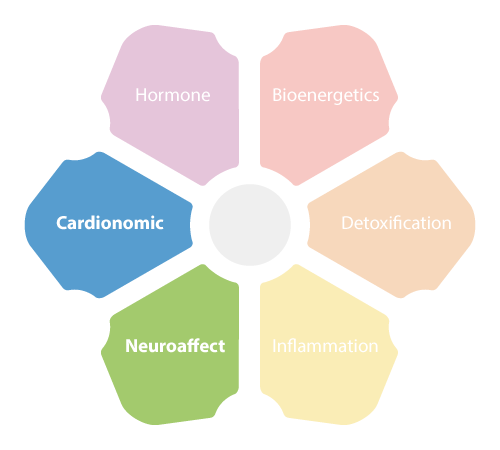 Losing a loved one is never easy, regardless of whether it had been expected or occurred without warning. For some, the effects of grief are only felt for a relatively brief period of time. But this is not the case for everyone. Grief is not just an emotional phenomenon. It can create enormous amounts of stress and have a major effect on your health as well. This article will focus on how the effects of grief act as a stressor on the body, potentially leading to adrenal fatigue and other health issues. Understanding how grief affects your health can help you take the necessary steps to support your body during this time.
Losing a loved one is never easy, regardless of whether it had been expected or occurred without warning. For some, the effects of grief are only felt for a relatively brief period of time. But this is not the case for everyone. Grief is not just an emotional phenomenon. It can create enormous amounts of stress and have a major effect on your health as well. This article will focus on how the effects of grief act as a stressor on the body, potentially leading to adrenal fatigue and other health issues. Understanding how grief affects your health can help you take the necessary steps to support your body during this time.
Grief is a strong negative emotion that is characterized by deep sorrow. It is a natural reaction to the loss of a loved one.
Depending on the person, the effects of grief can manifest in various ways. A person experiencing grief may be overwhelmed with emotion. They may neglect their own needs and overall health. They may forget to take medications, skip meals, sleep too much or not enough, or lack motivation for most daily tasks. The effects of grief can also extend to one’s social life. Some people may isolate themselves from their family and friends after the loss of a loved one.
Grief is also a form of stress. It has physiological effects on the body. And grief often lasts for a long time. This can become a source of chronic stress on the body, and it is the reason why grief can eventually trigger adrenal fatigue and other health problems.
While grief is inevitable, and it is often a very important emotion to allow yourself to experience and process, it is also important to understand how it will affect your body, so that you can take the necessary measures to support yourself and your health during this time.
Primarily this article focuses on how the effects of grief can manifest as stress, creating difficulties for your body’s systems just like any chronic stressor.
In some ways, the effects of grief are healthy. Grief is a necessary emotion, a pathway to acceptance. However, the effects of grief can also present a significant form of stress on the body.
When it comes to handling any type of stressor, the body relies on its NeuroEndoMetabolic (NEM) Stress Response system. This system is organized into six circuits, teams of organs and systems in your body that work closely together and can help explain the source of different symptoms you may experience.
 The Neuroaffect circuit, part of the NEM response, is composed of the body’s autonomic nervous system (ANS), brain, and gastrointestinal (GI) system. All these systems depend on various neurotransmitters to be able to balance your mood, emotions, and physical functions. A lot of these neurotransmitters are made in the GI system. And when there is stress, the production of neurotransmitters can become dysregulated. This can contribute to decreased mood levels and depression. If may also affect your ability to think properly.
The Neuroaffect circuit, part of the NEM response, is composed of the body’s autonomic nervous system (ANS), brain, and gastrointestinal (GI) system. All these systems depend on various neurotransmitters to be able to balance your mood, emotions, and physical functions. A lot of these neurotransmitters are made in the GI system. And when there is stress, the production of neurotransmitters can become dysregulated. This can contribute to decreased mood levels and depression. If may also affect your ability to think properly.
In some cases, the effects of grief may also manifest as abnormal brain circuitry. Some studies have shown that grief can affect the brain reward system, which can lead to a form of addiction. One 2008 study found that grief can trigger abnormal activity in the reward center of the brain.
Chronic inflammation can be one of the effects of stress in the form of grief, and it can have many consequences on one’s health. Inflammation causes the gut lining to become more permeable. Because of this, harmful toxins can more easily enter the body and negatively affect the gut’s microbiome. As a result, immune function can also become compromised as well.
Grief can also affect your heart. The Cardionomic circuit of the NEM is made up of the ANS, cardiovascular system, and adrenal glands. When one experiences any kind of stress, it has cardionomic effects. The heart rate goes up and the breathing rate also increases. Blood also pumps through the body more vigorously, giving you the best chance to respond to the stressor.
Typically, the body systems involved in the cardionomic response return to normal once the stressor is gone. In the case of grief, however, the stress can be prolonged and the cardionomic response keeps working overtime. As a result, you may experience stronger heartbeats and heart palpitations. In more severe cases, serious heart problems can result. A 2012 study found that participants who experienced grief developed an increased risk for a heart attack or acute myocardial infarction.
The adrenal glands are also part of the body’s main response to stress. When there is a stressor, it releases the primary stress hormone cortisol. When stress is prolonged, the adrenals continue to produce cortisol until they are no longer able to keep up with demand. This causes significant hormonal imbalance in the body and consequently, Adrenal Fatigue Syndrome (AFS).
Dealing with grief is like dealing with nothing else, and coping with grief may require the help of a professional counselor, therapist, or support group. It is important to find ways to share and express your feelings. In many cases, feeling grief is a process you just have to go through. It may last for years, and may even recur unexpectedly afterward.
However, there are steps you can take to reduce the level of stress on your body and find a safe space for your feelings.

The effects of grief are not just emotional. They can influence your body too. And through affecting the systems that control your hormones, heart, mood, and brain, grief can create long-term challenges for your health. The best way to deal with these effects is to try to reduce the stress that grief causes.
Among the significant effects of grief is are neurotransmitter imbalances and changes in brain wiring. Because grief is a form of stress, it can also affect your levels of inflammation, immune function, and cardiovascular health.
